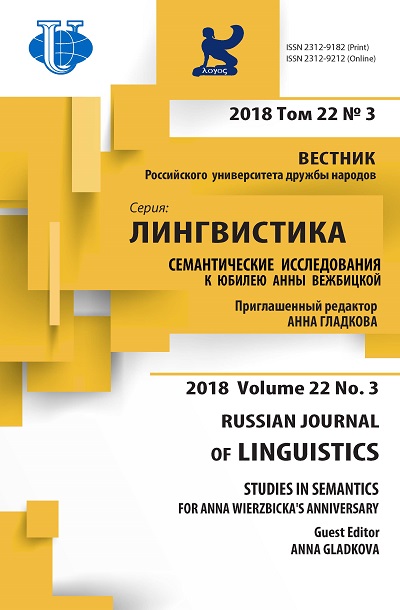Analysis of Kinship Terms Using Natural Semantic Metalanguage: Anna Wierzbicka’s Approach
- 作者: Kotorova E.G1,2
-
隶属关系:
- University of Zielona Góra
- National Research Tomsk Polytechnic University
- 期: 卷 22, 编号 3 (2018): Studies in semantics: for Anna Wierzbicka’s anniversary
- 页面: 701-710
- 栏目: 概述简评
- URL: https://journals.rudn.ru/linguistics/article/view/19353
- DOI: https://doi.org/10.22363/2312-9182-2018-22-3-701-710
如何引用文章














